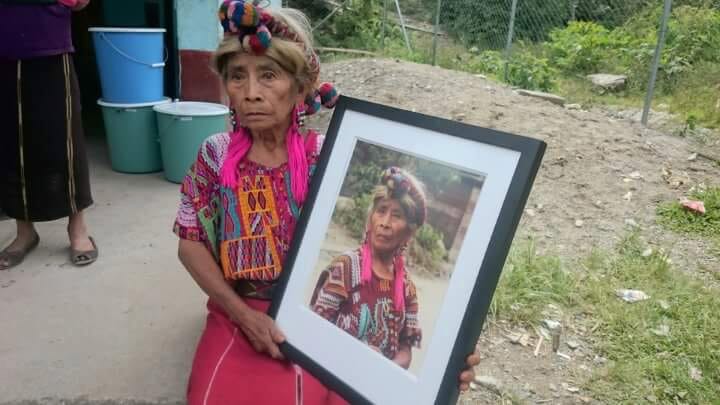Rosa
What has she seen?
I do not know Rosa but in 2016 I was fortunate enough to get a good photograph of her. Rosa lives in a very remote Guatemalan community, Chel in the department of El Quiche. It is located some forty miles from Chajul which is part of what is called the Ixil Triangle, three towns that form a triangle populated by the Maya Ixil people.
Guatemala is the size of the state of Tennessee. It has great diversity and very challenging terrain with some thirty-seven volcanoes, three of which are active. While the national language is Spanish there are twenty-two different indigenous groups, each with their own language. Ixil is one of those languages.
The Ixil Triangle is an area of Guatemala that saw incredible violence during the thirty-six year civil war that ended in 1996. More than two hundred thousand mostly indigenous men, women and children were massacred during the war.
From Chajul to Chel those forty miles took two and a half hours on a mountainous dirt road which no longer exists thanks to a hurricane three years ago. The drive was very challenging even for a four-wheel drive vehicle. More than once I had to ask the passengers to get out and push. Up one mountain range and down another. Beautiful scenery if you did not look at the road. At one point we had to drive through one of the many controversial hydroelectric facilities. Controversial because they involve foreign money and interests, displaced indigenous groups and neither money nor electricity for the displaced people. Not to mention corrupt Guatemalan officials who reap the benefits of granting both the land and the permission.
The entrance to Chel is a handmade log bridge over a fairly robust river. And then you park because there are no other navigable roads. I was there as part of a group that was going to train the local teachers how to use a server containing educational resources in their schools. Some of the teachers had walked hours to be able to attend the training.
Wandering the few dirt roads of Chel, I encountered Rosa. A friend asked her if we could take her photo. She did not respond but turned towards me and luckily I had my finger on the shutter release.
In April of 1982 during the Civil War there was a massacre in this tiny community of some five hundred families. The war was between the guerrillas, or the resisters, and the government army with the army frequently torturing and murdering whole communities. The impoverished Maya Ixil people of Chel were unarmed and defenseless. The army promised to bring them food to keep them from fleeing into the mountains. They returned without any food and in roughly three hours murdered about one-fifth of the population throwing their bodies, men, women and children, into the river off of the bridge that I had just driven over.
If we can assume that Rosa is in her sixties or seventies she would have been a young adult in 1982. Unfortunately, I was unable to ask her any questions as she only spoke the Maya Ixil language. No Spanish. Did she flee into the nearby mountains and live in the woods as so many did during the war? Refugees in their own country. How did she survive? Was she raped? What did she see? Or had she migrated from another community after the end of the war? Questions I will likely never know the answers to.
Some months after I had taken the photo a group of development workers who were going to Chel offered to take a framed copy of the photograph with them and deliver it to Rosa.
As you can see Rosa was quite bewildered, probably not sure who that was in the photo as mirrors are a very rare commodity in an impoverished village. Additionally, a group of gringos who only spoke Spanish were giving her a gift and standing in front of her with cameras. There were attempts to communicate with her which is how they learned her name. In the original photograph Rosa looks like the queen of Chel. In this photo you can see some of what her eyes have seen on her face.
If you would like to learn a bit more about life in Guatemala which is very relevant to the discussion about immigration you might want to watch one or both of the following movies, both available on Amazon Prime.
500 Years - Pamela Yates, director and Finding Oscar directed by Steven Spielberg
Books - The Fish that Ate the Whale by Rich Cohen, Bitter Fruit by Stephen Schlesinger and Silence on the Mountains by Daniel Wilkinson
First person accounts of the 1982 massacres in Chel
https://nisgua.org/tribunal-hears-testimonies-of-massacres-ixil/







